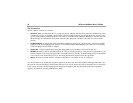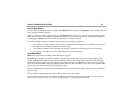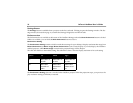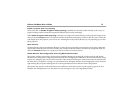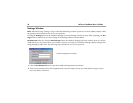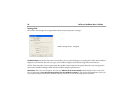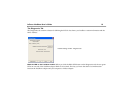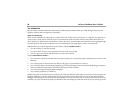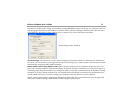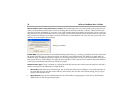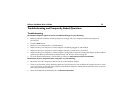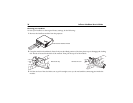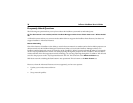
20 InFocus LiteShow User’s Guide
The WLAN Tab
The WLAN tab contains connection and security/authentication options. When you make changes in this tab, the
LiteShow reboots and is temporarily unavailable.
Types of connections
There are two methods of connecting to a wireless network. Ad-hoc mode, also known as “computer-to-computer” or
“peer-to-peer” mode, allows wireless devices to communicate with each other directly and without the need of an
access point (AP). Infrastructure mode allows wireless devices to communicate with each other by first going through
an access point. In this mode, wireless devices can communicate with each other or with a wired network.
Which method you choose depends on several factors. Choose Ad-Hoc mode if:
• you do not have a corporate network
• you do not have access to your corporate network via an Access Point
• you are a guest at a facility and do not have access to the network
Choose infrastructure mode if:
• you want to be connected to other network resources while you are projecting (like email, printers, servers, or the
Internet)
• you want to project a network resource (like a web page or a presentation on a server)
• you want to do remote conferencing (meaning you can be presenting in one location and displaying your presen-
tation at another location that has a LiteShow and access to the network)
• you want to manage multiple LiteShow adapters
• you want the protection of a WEP key
NOTE: If you plan to use Infrastructure mode in your office and Ad-Hoc mode when you travel, you must switch your
LiteShow Manager to Ad-Hoc mode before leaving your Infrastructure environment. If you do not, then LiteShow
Manager is still trying to communicate with your LiteShow via your AP when you are on the road. Since the AP is not
available, you can’t communicate with your LiteShow and can’t change it to Ad-Hoc mode. So if you need to go on the



